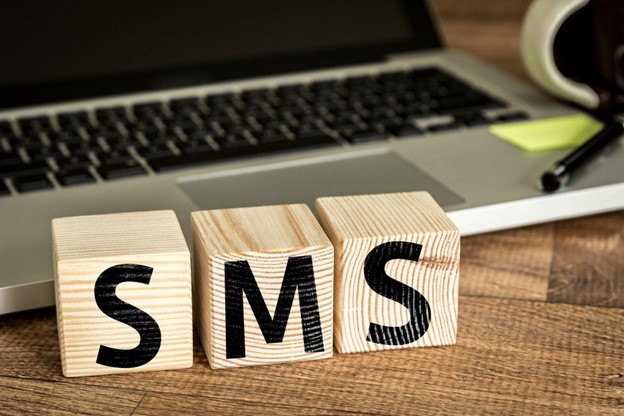The digital landscape can feel like a minefield, especially in matters of SMS security. While short message service (SMS) is a convenient and popular form of communication, it is not without its risks. From phishing scams to malware attacks, SMS threats lurk in dark corners, ready to hack your personal information.
But fear not! Armed with the right knowledge and tools, you can fortify your defenses and navigate this landscape safely. Let’s delve into the common SMS security threats and learn how to avoid them.
1. SMiShing Scams
SMiShing (Short Message Service Phishing) targets your smartphone through SMS. The attacker sends a text message pretending to be from a legitimate entity, such as a bank or government agency. Then, it prompts you to click a link or provide personal information.
To avoid falling victim to this and to have secure communications, always verify the sender’s identity and avoid clicking on unknown links. If you receive a suspicious message, contact the supposed sender through a trusted source to confirm its legitimacy.
2. Malware Attacks
Malware is software designed to harm, disrupt, or get unauthorized access to a device. Cybercriminals can send SMS in disguise. They can appear like bills, shipping notifications, or other enticing content with malware embedded in links.
Installing reputable security software on your phone to protect yourself from malware attacks. You should also avoid clicking on suspicious links. Don’t download apps from unknown sources; only use official app stores.
For example, if you are working in the healthcare industry, you should look into HIPAA compliant texting services from companies like iPlum. They will help you create a 2nd phone line and ensure secure texting between you and your staff. This will ensure your communication is secure and compliant with industry regulations.
3. Eavesdropping
SMS messages are unencrypted. This means anyone with basic technical knowledge can intercept and read them. This leaves your private conversations vulnerable to snoops and hackers.
To secure your SMS conversations, use secure texting apps that encrypt messages. These apps use special algorithms to scramble the text, making it unreadable to unauthorized parties.
4. Data Leaks
Sharing sensitive information like bank details, passwords, or social security numbers via SMS is a data leak waiting to happen. Even if your message doesn’t directly fall into the wrong hands, it can be stored on servers and databases. These can be compromised in data breaches.
To keep your information safe, avoid sharing sensitive data through SMS. Instead, use secure channels such as encrypted messaging apps or email.
You should look into text archiving solutions if you must share sensitive information. This will ensure that your messages are securely stored and can be retrieved.
Be Responsible With Your SMS Security Today
SMS security threats are ever-evolving, and it’s crucial to stay vigilant to keep your personal information safe. By following these tips and taking necessary precautions, you can rest assured that your SMS conversations are secure.
Remember always to think before you click. If in doubt, don’t hesitate to reach out to the supposed sender for verification. Stay safe!
Did you find this article helpful? If so, check out the rest of our site for more.
Read Also
- How to Drive Growth Through Customer Centricity in HealthcareThe world of healthcare is changing in big ways. Consumers are now stepping up and taking charge of their health journeys. This change is happening now for important reasons. The U.S. health and wellness market is huge, projected to be over $6 trillion in 2025. This growth is fueled by rising out-of-pocket costs and more… Read more: How to Drive Growth Through Customer Centricity in Healthcare
- Why Biotech Companies Choose Contract Manufacturing Organizations for Scalable GrowthBiotech and pharmaceutical companies are under constant pressure to innovate, scale fast, and stay compliant. Doing everything in-house can slow them down. That’s why many are turning to a contract manufacturing organization to handle specialized production needs—especially in genetic and molecular biology fields. Reliable CMOs offer speed, precision, and regulatory knowledge. For early-stage firms, this… Read more: Why Biotech Companies Choose Contract Manufacturing Organizations for Scalable Growth
- Maximizing Digital Reach for Podiatry Clinics in Local HealthcareMaximizing Digital Reach for Podiatry Clinics in Local Healthcare As the healthcare industry evolves, mobile marketing becomes indispensable for practitioners. Podiatry clinics, focusing on foot and ankle care, must adapt to digital strategies to engage patients effectively. Implementing tailored SEO practices is crucial for these clinics to thrive in an increasingly competitive market. Digital marketing… Read more: Maximizing Digital Reach for Podiatry Clinics in Local Healthcare
- How to Start a Mental Health Conversation with Your ManagerTalking about mental health at work can feel awkward, intimidating, or even risky. But if you’re struggling, keeping it bottled up isn’t going to make things better. Having an open and honest conversation with your manager can be a game-changer, whether you need accommodations, support, or just someone to understand what you’re going through. This… Read more: How to Start a Mental Health Conversation with Your Manager
- How Efficient Business Contracts Can Boost GrowthIn the business world, efficiency isn’t just a buzzword—it’s a necessity for survival and growth. Every facet of a company can contribute to greater efficiency, but some often-overlooked areas hold substantial potential. Business contracts, particularly those loaded with bureaucratic jargon, can slow down operations. Streamlining these can free up resources and time, allowing for greater… Read more: How Efficient Business Contracts Can Boost Growth
- The Future of Digital Marketing: Key Trends and StrategiesDigital marketing has evolved from being a secondary tool for businesses to becoming the backbone of global commerce. Today, organizations cannot ignore the rapid changes shaping the industry, from AI-powered tools to hyper-targeted strategies that meet consumers where they are. Whether you’re a startup aiming for visibility or an established brand looking to retain customer… Read more: The Future of Digital Marketing: Key Trends and Strategies
- Why ATU Market Research Could Be Your Secret Weapon for Raising Brand AwarenessIf there is something every business looks forward to, it is the willingness to be easily recognized amid a sea of competing brands. But in today’s crowded marketplace, standing out isn’t just about having a promising product or service; it’s about making sure your target audience knows you exist, tries you out, and keeps coming… Read more: Why ATU Market Research Could Be Your Secret Weapon for Raising Brand Awareness
- Top 3 Challenges in Multi-Country HCP Engagements and How to Overcome ThemIn the globalized compliance landscape of life sciences, engaging Healthcare Professionals (HCPs) across multiple countries presents challenges for life sciences companies and compliance officers. Compliance officers and life sciences companies must address diverse regulations and cultural differences to ensure effective and lawful HCP interactions. Adhering to global applicable rules and regulations is not an option… Read more: Top 3 Challenges in Multi-Country HCP Engagements and How to Overcome Them









